Filter by
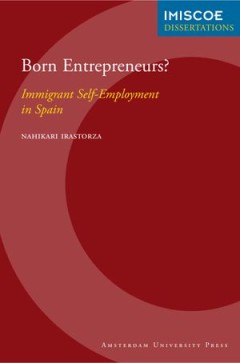
Born Entrepreneurs?
Are immigrants more enterprising than natives in Spain? How successful are migrant entrepreneurs compared to those who start businesses in their country of birth? With the growth of migration worldwide, questions such as these are garnering the attention of economists, policymakers and scholars. Born Entrepreneurs? asks how foreignness affects an immigrant's ability to launch and to grow a succ…
- Edition
- -
- ISBN/ISSN
- 9789089642431
- Collation
- -
- Series Title
- -
- Call Number
- -
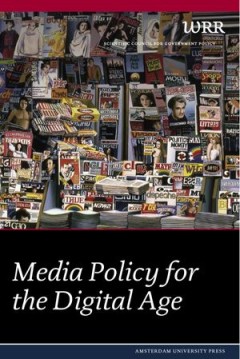
Media Policy for the Digital Age
Traditionally, the Netherlands has enjoyed being a test market for many ideas in the media. But over the last decade, progress has been severely hampered by lengthy discussions on the future structure of just one sector of media, namely public broadcasting via radio and television. The narrow approach results in a lot of paper, speeches and theories, but little in the way of definitive policy m…
- Edition
- -
- ISBN/ISSN
- 9789053568262
- Collation
- -
- Series Title
- -
- Call Number
- -
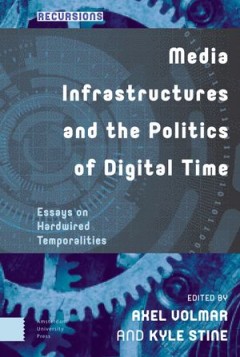
Media Infrastructures and the Politics of Digital Time Essays on Hardwired T…
Digital media everyday inscribe new patterns of time, promising instant communication, synchronous collaboration, intricate time management, and profound new advantages in speed. The essays in this volume reconsider these outward interfaces of convenience by calling attention to their supporting infrastructures, the networks of digital time that exert pressures of conformity and standardization…
- Edition
- -
- ISBN/ISSN
- 9789048550753
- Collation
- -
- Series Title
- -
- Call Number
- -
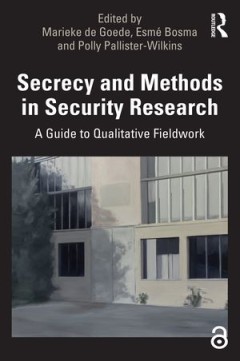
Secrecy and Methods in Security Research: A Guide to Qualitative Fieldwork
This book analyses the challenges of secrecy in security research, and develops a set of methods to navigate, encircle and work with secrecy.How can researchers navigate secrecy in their fieldwork, when they encounter confidential material, closed-off quarters or bureaucratic rebuffs? This is a particular challenge for researchers in the security field, which is by nature secretive and difficul…
- Edition
- -
- ISBN/ISSN
- 9780429675355
- Collation
- -
- Series Title
- -
- Call Number
- 320 SEC s
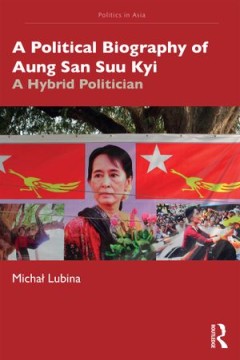
A Political Biography of Aung San Suu Kyi: A Hybrid Politician
This book is the first political biography of Aung San Suu Kyi covering both her years in opposition and all her years in power from 2016 onwards. It offers a new interpretation of Aung San Suu Kyi by presenting a balanced and thorough account of Suu Kyi’s policies. In the last 30 years there has not been a person in global politics who has risen so high and fallen so low – and so quickl…
- Edition
- -
- ISBN/ISSN
- 9781000178197
- Collation
- -
- Series Title
- -
- Call Number
- 305.8 LUB p
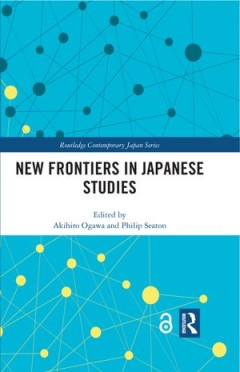
New Frontiers in Japanese Studies
Over the last 70 years, Japanese Studies scholarship has gone through several dominant paradigms, from ‘demystifying the Japanese’, to analysis of Japanese economic strength, to discussion of global interest in Japanese popular culture. This book assesses this literature, considering future directions for research into the 2020s and beyond.Shifting the geographical emphasis of Japanese Stud…
- Edition
- -
- ISBN/ISSN
- 9781000054149
- Collation
- -
- Series Title
- -
- Call Number
- 301 NEW n
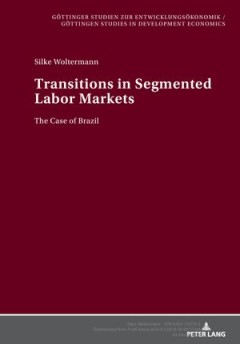
Transitions in Segmented Labor Markets
When labor market economists started to work on segmented labor markets, they classified informal employment as a transitory state. At the end of the 20 century, informal employment still persists governments’ attempts to eradicate it and represents a growing labor market segment not only in developing countries but worldwide. It is evident that informal employment will not disappear but has …
- Edition
- -
- ISBN/ISSN
- 9783631531624
- Collation
- -
- Series Title
- -
- Call Number
- 320 WOL t
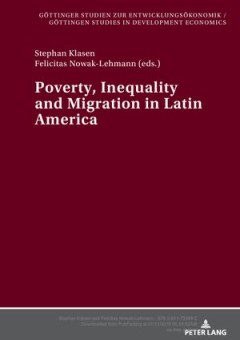
Poverty, Inequality and Migration in Latin Amerika
The causes and consequences of high inequality in incomes, assets, and many aspects of well-being in Latin America have recently (re-)emerged as a central research and policy issue. However, many open questions remain that will be dealt with in the contributions to this volume. First, the linkages between growth, inequality, and poverty in Latin America need further clarification. More analyses…
- Edition
- -
- ISBN/ISSN
- 9783631573273
- Collation
- -
- Series Title
- -
- Call Number
- 320 POV p
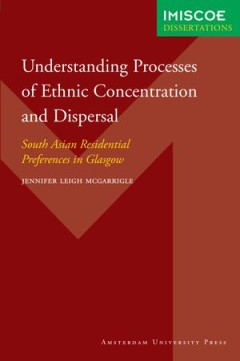
Understanding Processes of Ethnic Concentration and Dispersal
Questions surrounding 'race' as a spatial divider have come to the forefront of the political agenda, compelling us to revisit the debate on residential segregation. Drawing on the spatial analysis of changing dynamics in the ethnic geography of Greater Glasgow and qualitative research on the residential preferences of 40 South Asian households, this book enhances our understanding of settlemen…
- Edition
- -
- ISBN/ISSN
- 9789053566718
- Collation
- -
- Series Title
- -
- Call Number
- 320 MCG u
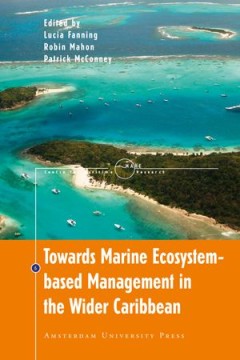
Towards Marine Ecosystem-based Management in the Wider Caribbean
An approach that encompasses the human and natural dimensions of ecosystems is one that the Wider Caribbean Region knows it must adopt and implement, in order to ensure the sustainable use of the region's shared marine resources. This volume contributes towards that vision, bringing together the collective knowledge and experience of scholars and practitioners within the Wider Caribbean to begi…
- Edition
- -
- ISBN/ISSN
- 9789089642424
- Collation
- -
- Series Title
- -
- Call Number
- 320 FAN t
 Computer Science, Information & General Works
Computer Science, Information & General Works  Philosophy & Psychology
Philosophy & Psychology  Religion
Religion  Social Sciences
Social Sciences  Language
Language  Pure Science
Pure Science  Applied Sciences
Applied Sciences  Art & Recreation
Art & Recreation  Literature
Literature  History & Geography
History & Geography